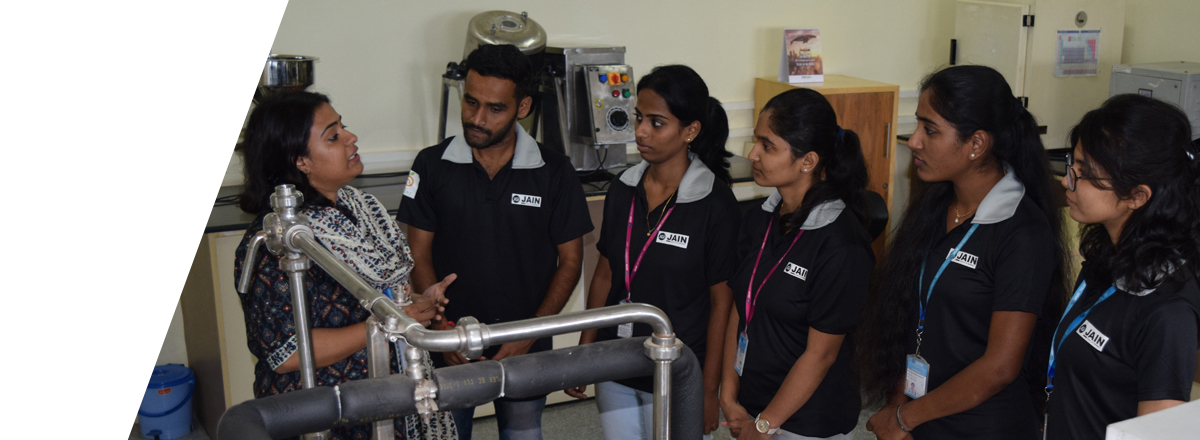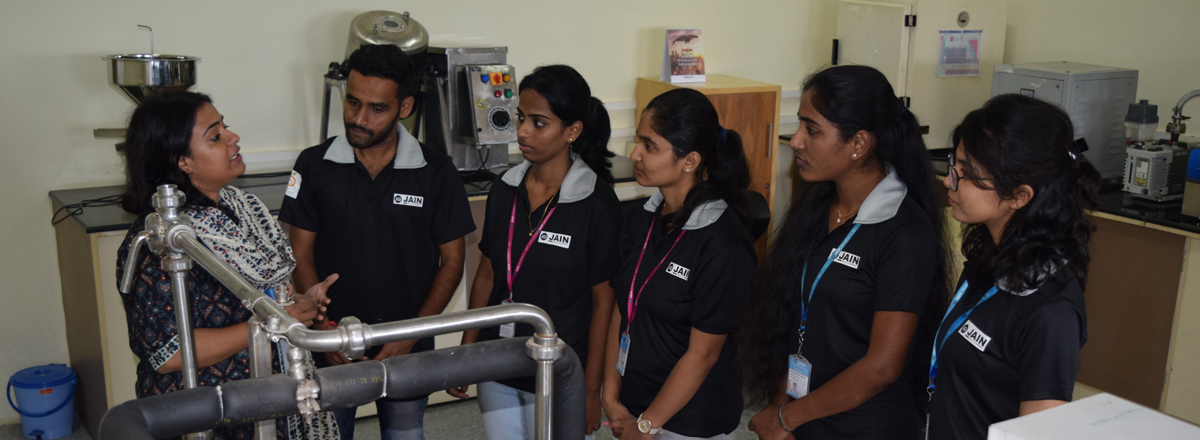M.Tech. in Food Technology


M.Tech. in Food Technology


A student who has passed Bachelor's Degree or equivalent (level 6.0). Obtained at least 50% marks (45% marks in case of candidates belonging to reserved category) in the qualifying examination shall be eligible for admission to M.Tech. programmes of 2-year duration.
However, students who have not studied respective courses from the discipline will have to undertake the prescribed bridge course(s).
The Department of Food Technology at JAIN (Deemed-to-be University) top M.Tech Food Technology college in Bangalore, established in 2014 with funding from the Ministry of Food Processing Industries, offers the best Food Technology courses in Bangalore. Our interdisciplinary programmes cater to diverse backgrounds, including biotechnology, engineering, and home science. With industry collaboration, students receive value-added programmes, industry training, and certifications, enhancing their skills in the FMCG sector. Our faculty, with doctoral degrees from esteemed institutions, brings rich academic and industry experience. Equipped with modern facilities and specialised laboratories, students can access the necessary research and entrepreneurship tools. We organise international conferences, expert lectures, workshops, industrial visits, and seminars, providing holistic development and practical learning experiences in the food technology course.
M.Tech. Food Technology - Being a sunrise sector, the food industry is going to be a major employer in the coming future and food engineering is one of the core areas of interest for upcoming new students. Food engineering is a multidisciplinary field of applied physical sciences which combines science, microbiology, and engineering education for food and related industries. Center for Emerging Technology, JAIN (Deemed-to-be University) is one of the food engineering universities that provide various scholarships and provisions as a part of program for attending international conferences and workshops at IIMs, AFSTI meetings, IITs, etc. Research level laboratories funded by Ministry of Food Processing Industries (MOFPI), Govt. of India and on campus placements are also available.
M.Tech. Food Technology course will help you combine a lot of concepts and sciences to bring out the best ways to make sure the processed food stays neat, safe, tasty and healthy. From the process of the food, involving things like packaging, processing, preserving and things that are required for the distribution. You will also have guidance for doing research in India/abroad. Training in food industries and internships are also provided.
Download BrochureOpportunities in this is really vast now a days as food is one of the necessary needs. And that being on the right track is extremely important. Here are few opportunities the course will lead to
These are the careers that an M. Tech Food Technology graduate can follow on successful completion of the programme:
After completing M. Tech Food Technology course, there are several further study options available to enhance your knowledge and skills in this field: